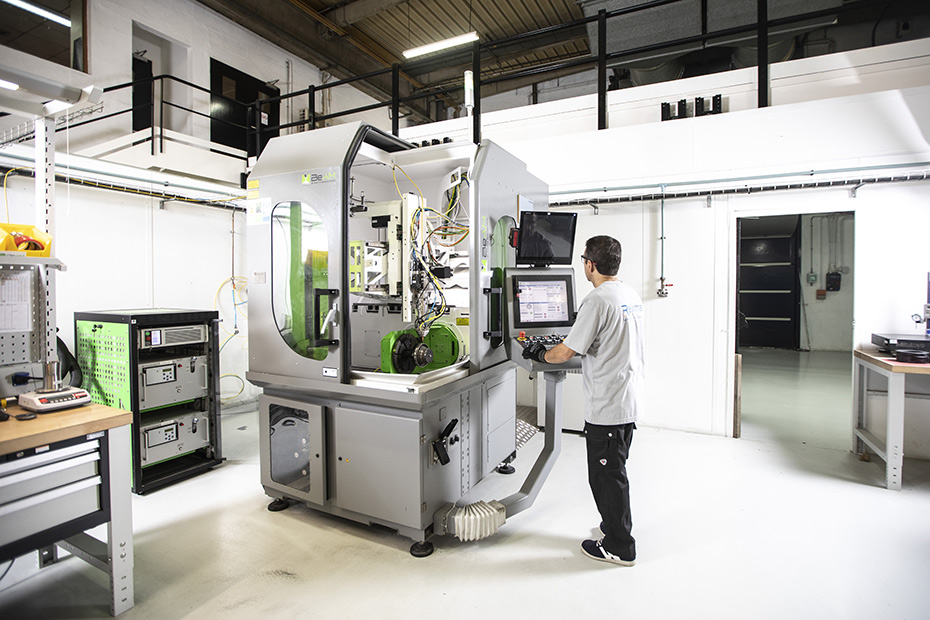The Fluoride Ion Cleaning (FIC) process is a specialized surface treatment method used primarily in the aerospace industry to achieve deep and thorough cleaning of metal parts. Utilizing thermochemistry furnaces, this process optimizes the cleaning and preparation of components, especially before repair or coating applications, including crack repair by brazing.
Applications
- Engine Component Cleaning: Ideal for cleaning turbine blades, compressors, and turbine nozzles, as well as other essential turbomachinery components.
- Maintenance and Repair: Ensures thorough cleaning of parts before non-destructive testing (NDT) and subsequent repairs, improving defect detection accuracy and the effectiveness of repair materials.
- Prepare for crack Repair by Brazing: FIC effectively prepares metal surfaces for crack brazing, ensuring reliable and long-lasting repairs

Operational Procedure
- Initial Preparation: Parts undergo stripping, degreasing, and mechanical cleaning to remove surface contaminants, ensuring effective subsequent cleaning.
- Furnace Treatment: The prepared parts are placed in the thermochemistry furnace, where the temperature is carefully adjusted, and the fluoride solution is introduced.
- Thermochemical Cycle: The parts are exposed to a protective atmosphere containing fluoride ions, controlled through a precise temperature cycle and dosage, for a specified duration. During this cycle the Thermochemical Reaction occurs: the combination of elevated temperatures and fluoride ions effectively dissolves metal oxides and other surface contaminants, preparing the parts for further processing.
- Inspection: Post-treatment, parts undergo visual inspection, intergranular attack control (IGA), and non-destructive testing (NDT) to verify surface cleanliness and integrity.
Advantages of the FIC Process with Thermochemistry Furnaces
- Enhanced Cleaning Efficiency: The use of heat and fluoride ions enables the complete removal of oxides and contaminants, especially from the complex alloys commonly used in aerospace and other high-tech industries.
- Precise Process Control: Thermochemistry furnaces allow for exact control of temperature and atmospheric composition, ensuring consistent and effective cleaning results.
- Preservation of Base Material: The FIC process effectively cleans metal surfaces without significant loss of base material, thus preserving the structural integrity of critical components.
- Adaptability to Complex Geometries: This treatment is particularly well-suited for parts with intricate shapes and internal surfaces that are challenging to clean using conventional methods such as parts with cooling holes.
- Optimal Preparation for Brazing: FIC prepares surfaces for crack repair by brazing, promoting strong adhesion and increasing the durability of the repair.

